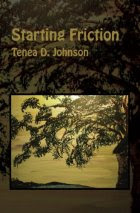

Recently I re-read and re-watched
No Country for Old Men. I suppose I wanted both to see if the book and film versions were as good as I remembered them and how they differed.
The film is amazingly faithful in many ways to the novel, yet differs in some interesting points. Much of the novel's scattered narration by Sheriff Bell is incorporated in the film through dialogue. I never felt the narration in the novel was in any way artificial, but the Coen Brothers have placed many of Bell's thoughts and worldview seamlessly into conversations with his wife, deputy, and friends.
Some scenes (and characters) are completely eliminated, such as the young hitchhiker Moss picks up in the last third of the novel. The Coens wisely cut her character out of the film. While she does serve a purpose in the book, there's no room for her story in the film. In fact including it would probably result in a lack of focus, something I've never seen the Coens do.
But I want to focus on two differences in the book/film versions:
Chigurh has an extended conversation with Carla Jean Moss in her house, just after she's buried her mother. Llewelyn is already dead and Chigurh has found Carla Jean, ready to make good on his promise to kill her, although her death will change nothing other than to satifsy Chigurh's twisted moral code. In the book, Carla Jean recognizes the inevitability of her situation, is resigned to it for a time, then pleads with Chigurh for her life.
Initially I thought this was a very strong scene in the novel that lets the reader in on not what drives Carla Jean, but what drives Chigurh. I didn't count words, but I believe this the most Chigurh says in any one scene. When I first saw the film, I felt the Coens had gyped the audience: here's where we
really get to see what drives Chigurh, but most of it doesn't make it into the film.
Now that I read/see it again, I think the film version of this scene is the stronger of the two. Carla Jean is scared in the film version, but she doesn't wimper and fall apart. In the film, when Chigurh flips the coin and Carla Jean refuses to call it, there's a brief shot of Bardem that shows us, just for a second, that refusal is something he's never considered. It's very quick, but it's there.
That scene comes at the perfect time. Maybe it causes Chigurh to reflect as he's leaving the house, but maybe I'm reading more into it than is there. Regardless, the next scene, where Chigurh's car gets smashed by another driver, is important.
Initially I thought the scene was an incredible cheap shot. I didn't remember how it had happened in the book until my friend Trent reminded me. In the book, Chigurh is slammed by a car (or was it a truck?) of Mexicans who had run a red light. In the film, Chigurh is driving away from Carla Jean's house when he looks in the rearview mirror to see two boys riding bicycles. It distracts him for just a moment. You would think that when he looks up, he would see the car passing underneath a
red light, but it's green. He's in the right. But a station wagon rams into him for no apparent reason other than the guy ran a red light. I still think that's too coincidental. All it would have taken for me is to have had that light turn red. I'd like to think Chigurh was not only distracted by the boys but also by Carla Jean's refusal to play his game, to buy into his wacked-out worldview, even at the cost of her life.
I could write much more, but it's time to go to work. In the meantime, everybody have a good weekend and watch out for guys flipping coins.



























